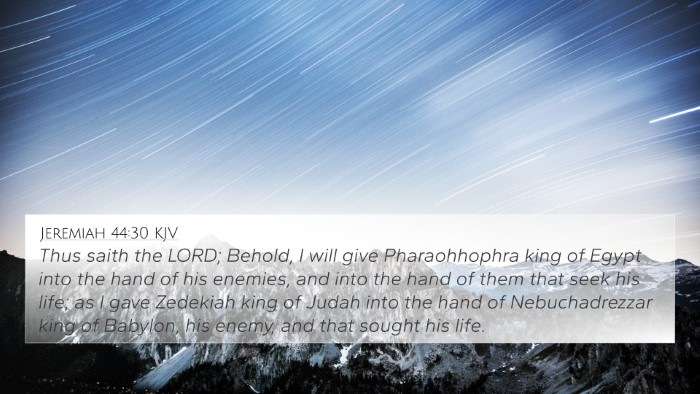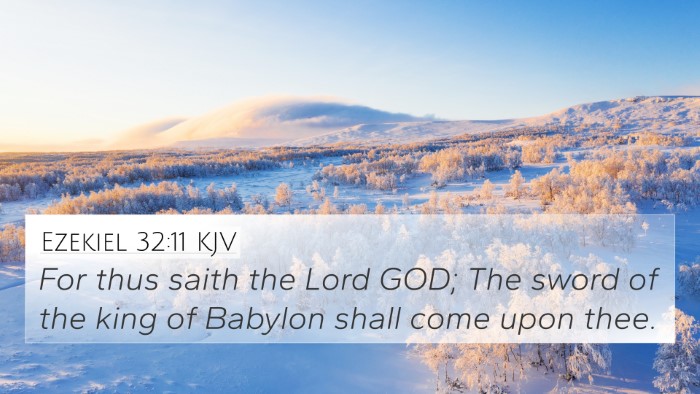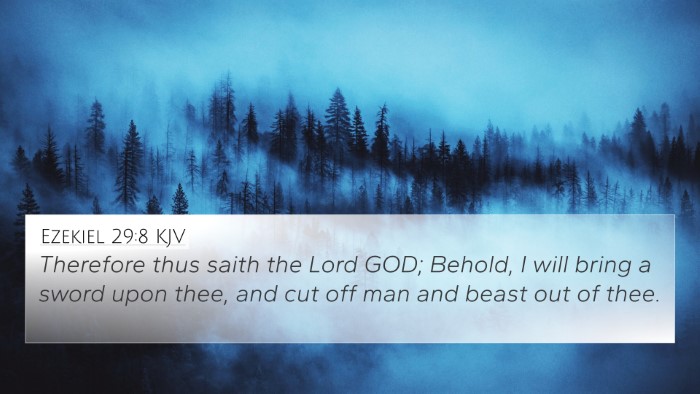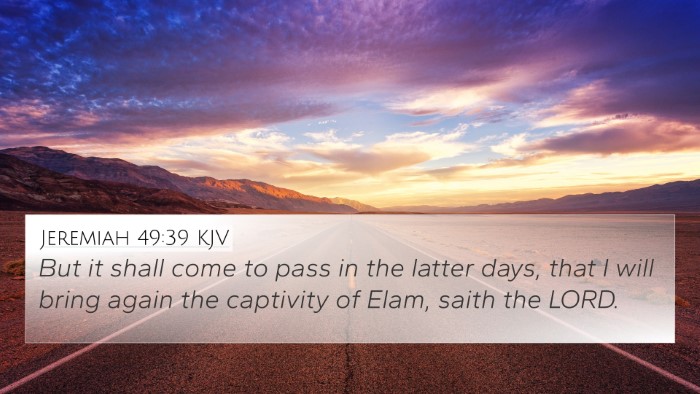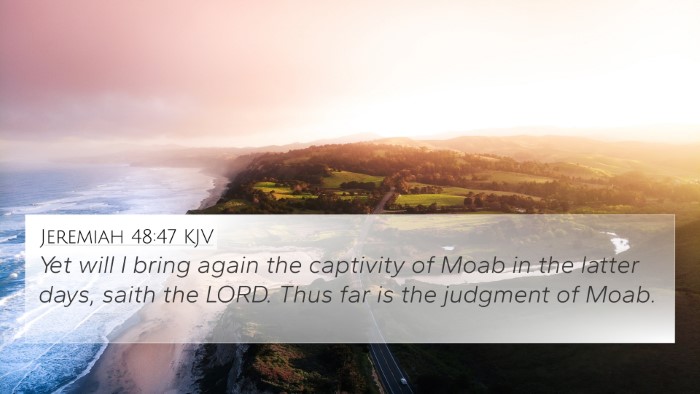Understanding Jeremiah 46:26
Jeremiah 46:26 reads: "And I will deliver them into the hand of those that seek their lives, and into the hand of Nebuchadrezzar king of Babylon, and into the hand of his servants: and afterward it shall be inhabited, as in the days of old, saith the Lord."
Context and Background
In the context of Jeremiah, this verse addresses the fate of Egypt following their conflict with Babylon. God declares that Egypt will be delivered into the power of Nebuchadnezzar, the king of Babylon. This punishment reflects the divine judgment against Egypt, a nation often depicted as a rival to Israel and a place of refuge for many Israelites.
Commentary Insights
Insights from various public domain commentaries lead us to a deeper understanding of this verse:
- Matthew Henry: In his commentary, Henry emphasizes the certainty of God's judgments against nations that oppose His will. He highlights the inevitability of Egypt's fall as a result of their pride and rebellion against God. The mention of Nebuchadnezzar serves as a reminder that God uses earthly rulers to execute His divine plans.
- Albert Barnes: Barnes explains that God’s choice to deliver Egypt’s fate into Babylonian hands illustrates His sovereignty. He notes that after the judgment, Egypt would eventually experience a restoration, reflecting God's mercy even after His righteous wrath.
- Adam Clarke: Clarke provides a historical lens, stressing the temporal nature of nations and their powers. He adds that this prophecy signifies that Egypt will face a period of desolation before being reinhabited, which points to a future hope amid judgment.
Bible Cross-References
This verse connects with several other biblical passages that illustrate similar themes of judgment, sovereignty, and restoration:
- Isaiah 19:1: This verse predicts judgment against Egypt, indicating a coming confrontation with God.
- Ezekiel 30:3: Here, the prophecy of the downfall of Egypt is emphasized, indicating widespread calamity.
- Daniel 2:37-38: Nebuchadnezzar is described as the head of gold, symbolizing God's appointed authority over the nations.
- Jeremiah 25:9: This passage discusses Babylon as a tool of God's judgment against other nations.
- Revelation 18:2: Echoes the theme of the downfall of great nations, indicating the eternal aspect of God's judgment.
- Romans 9:17: Paul references Pharaoh to explain God’s purpose in raising up rulers to demonstrate His power.
- Lamentations 2:3: Reflects on God’s wrath against nations that oppose His designs, illustrating a consistent theme of divine judgment.
Thematic Connections
This verse forms part of broader themes found throughout the Bible, presenting the idea of divine sovereignty, judgment, and eventual restoration:
- Divine Judgment: The consistent narrative throughout the scriptures is that God judges nations for their actions against His will.
- Sovereign Authority: The notion that God exercises control over earthly rulers and kingdoms is pervasive, illustrating His ultimate authority over creation.
- Restoration After Judgment: Many instances in Scripture show that devastation leads to restoration, representing God's mercy and grace amid punishment.
Conclusion
In summary, Jeremiah 46:26 serves as a stark reminder of God’s sovereignty over nations and the consequences of rebelling against His will. Through understanding this verse in light of related scriptures, we see a compelling narrative of divine judgment intertwined with hope for eventual restoration. For those seeking deeper insights into emotional and spiritual matters, the interconnected themes throughout the Bible encourage further study and reflection.



